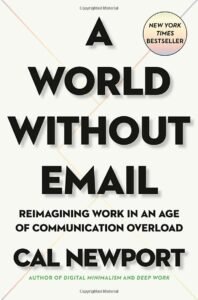|
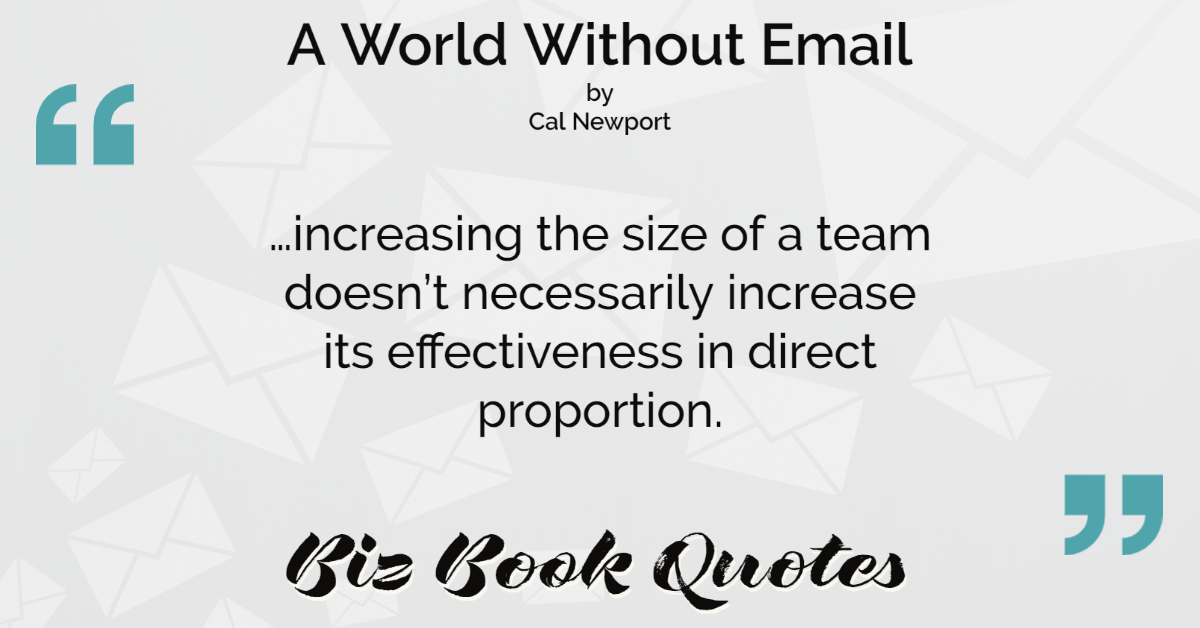
|
A World Without Email:
…increasing the size of a team doesn’t necessarily increase its effectiveness in direct proportion.
|
86 |
|

|
A World Without Email:
The best way to deploy these highly skilled individuals… was to give them clear objectives and then leave them alone to accomplish their brainy work however they saw fit. – Peter Drucker
|
90 |
|
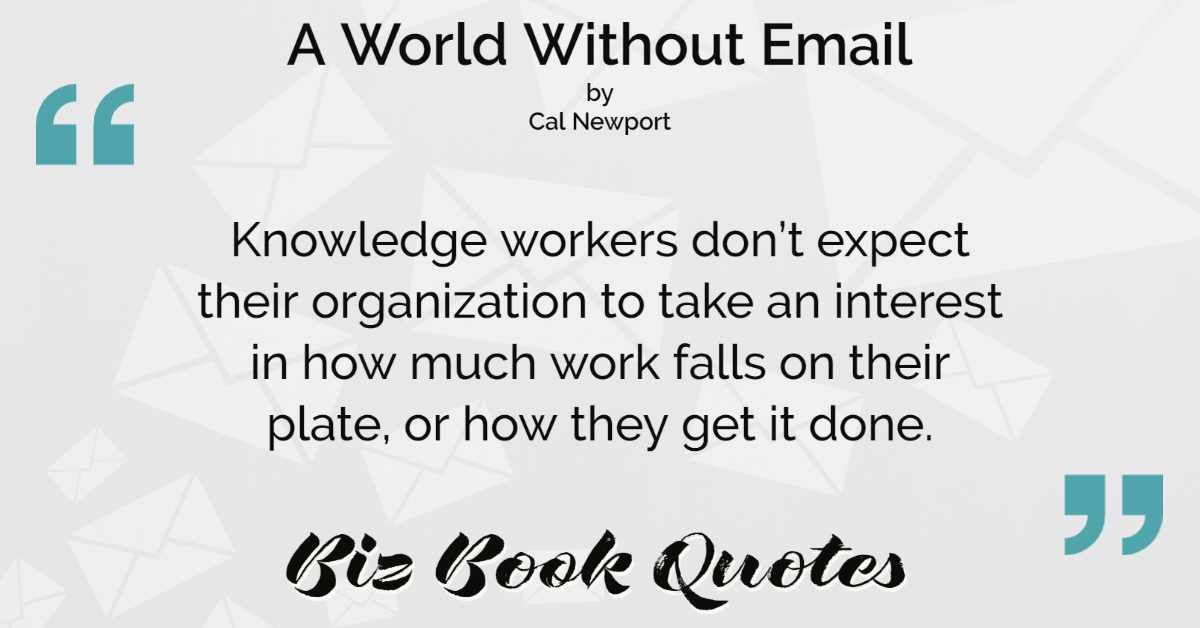
|
A World Without Email:
Knowledge workers don’t expect their organization to take an interest in how much work falls on their plate, or how they get it done.
|
90 |
|
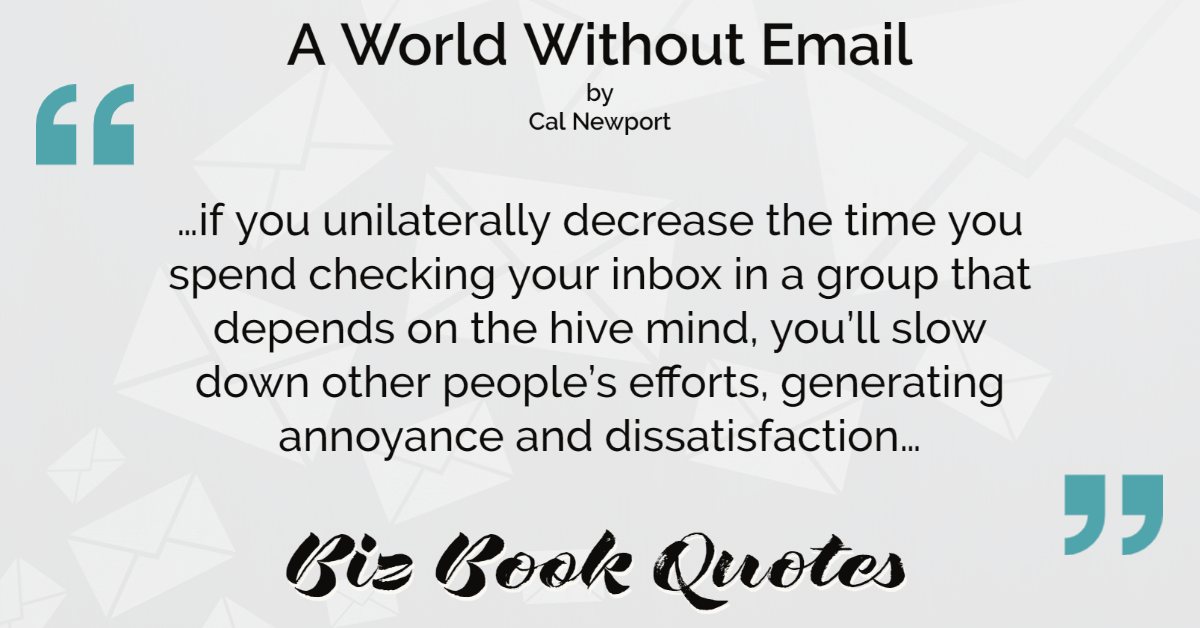
|
A World Without Email:
…if you unilaterally decrease the time you spend checking your inbox in a group that depends on the hive mind, you’ll slow down other people’s efforts, generating annoyance and dissatisfaction…
|
92 |
|
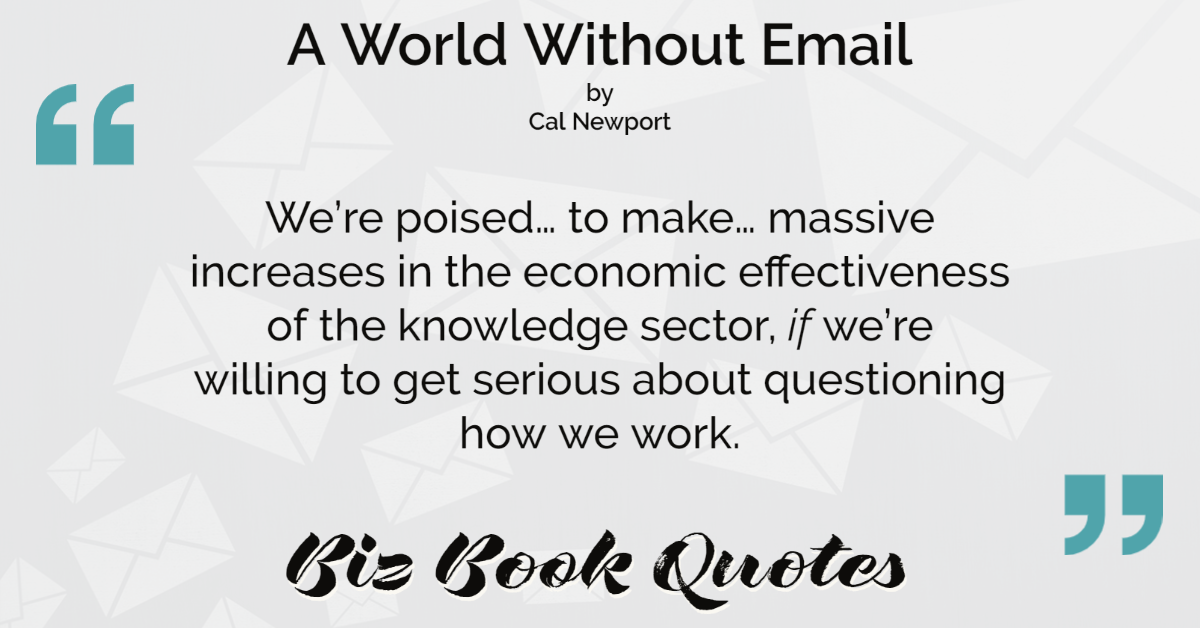
|
A World Without Email:
We’re poised… to make… massive increases in the economic effectiveness of the knowledge sector, if we’re willing to get serious about questioning how we work.
|
103 |
|
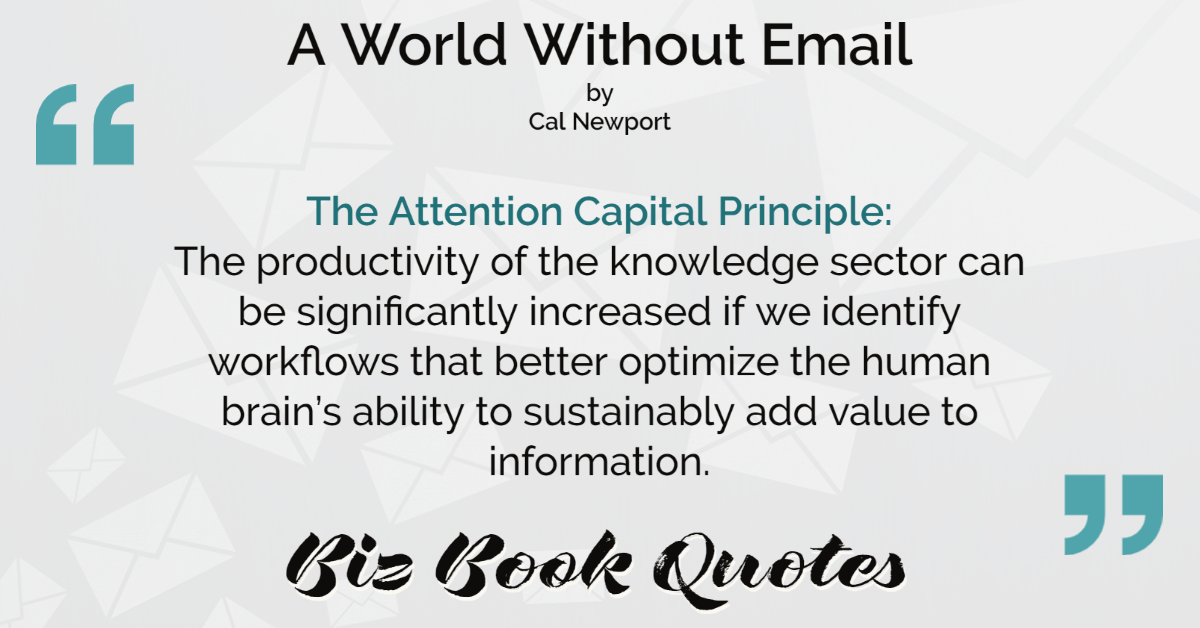
|
A World Without Email:
The Attention Capital Principle: The productivity of the knowledge sector can be significantly increased if we identify workflows that better optimize the human brain’s ability to sustainably add value to information.
|
103 |
|
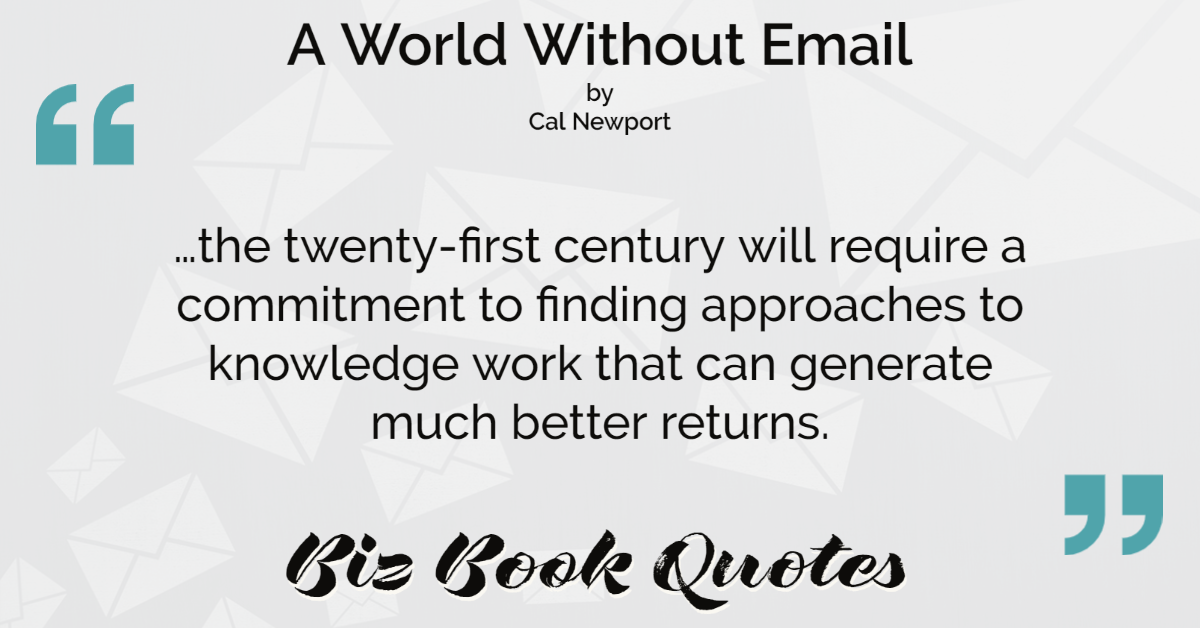
|
A World Without Email:
…the twenty-first century will require a commitment to finding approaches to knowledge work that can generate much better returns.
|
104 |
|
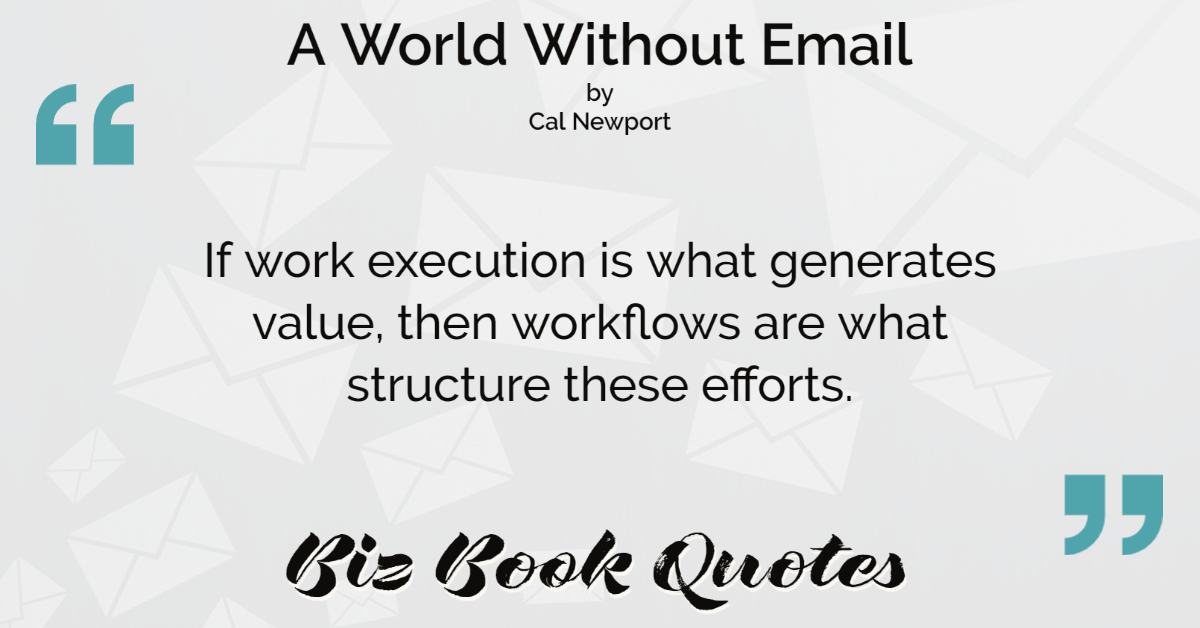
|
A World Without Email:
If work execution is what generates value, then workflows are what structure these efforts.
|
110 |
|
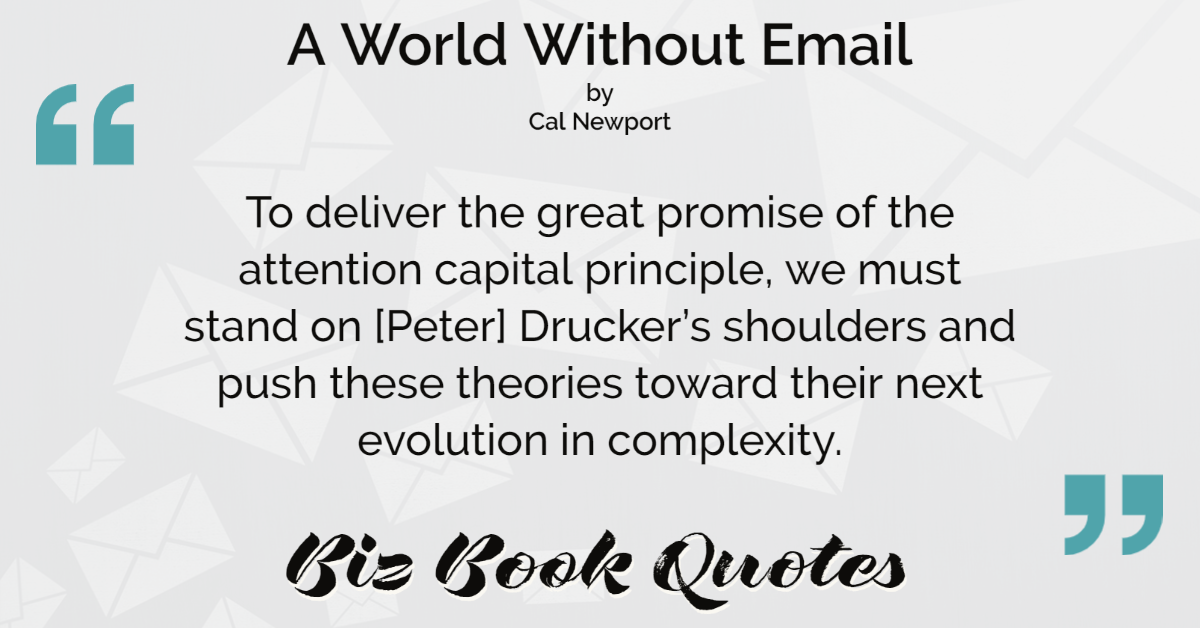
|
A World Without Email:
To deliver the great promise of the attention capital principle, we must stand on [Peter] Drucker’s shoulders and push these theories toward their next evolution in complexity.
|
111 |
|
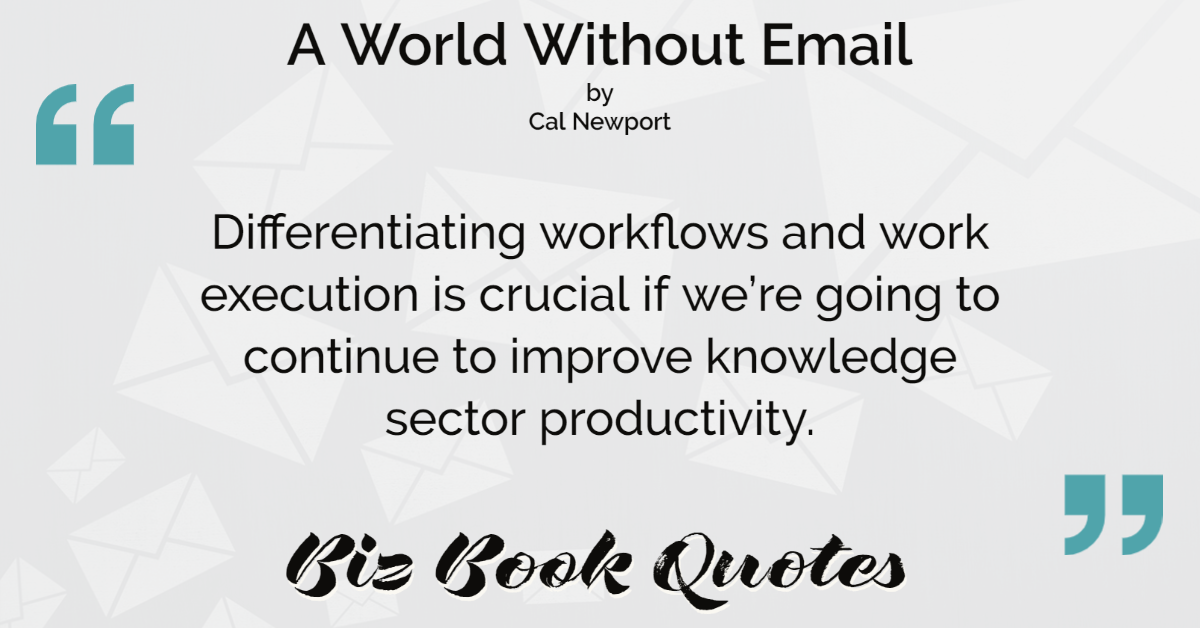
|
A World Without Email:
Differentiating workflows and work execution is crucial if we’re going to continue to improve knowledge sector productivity.
|
111 |
